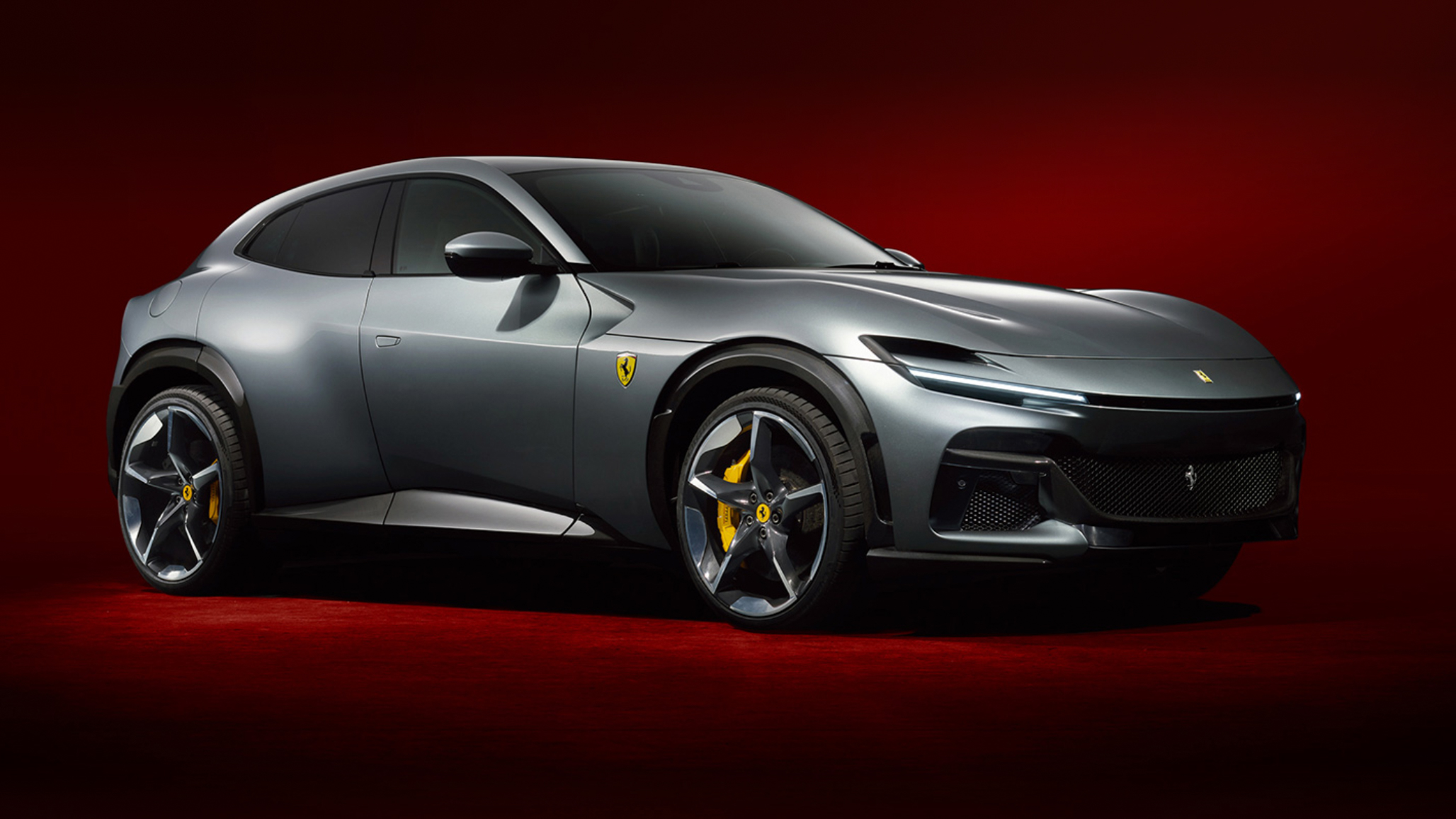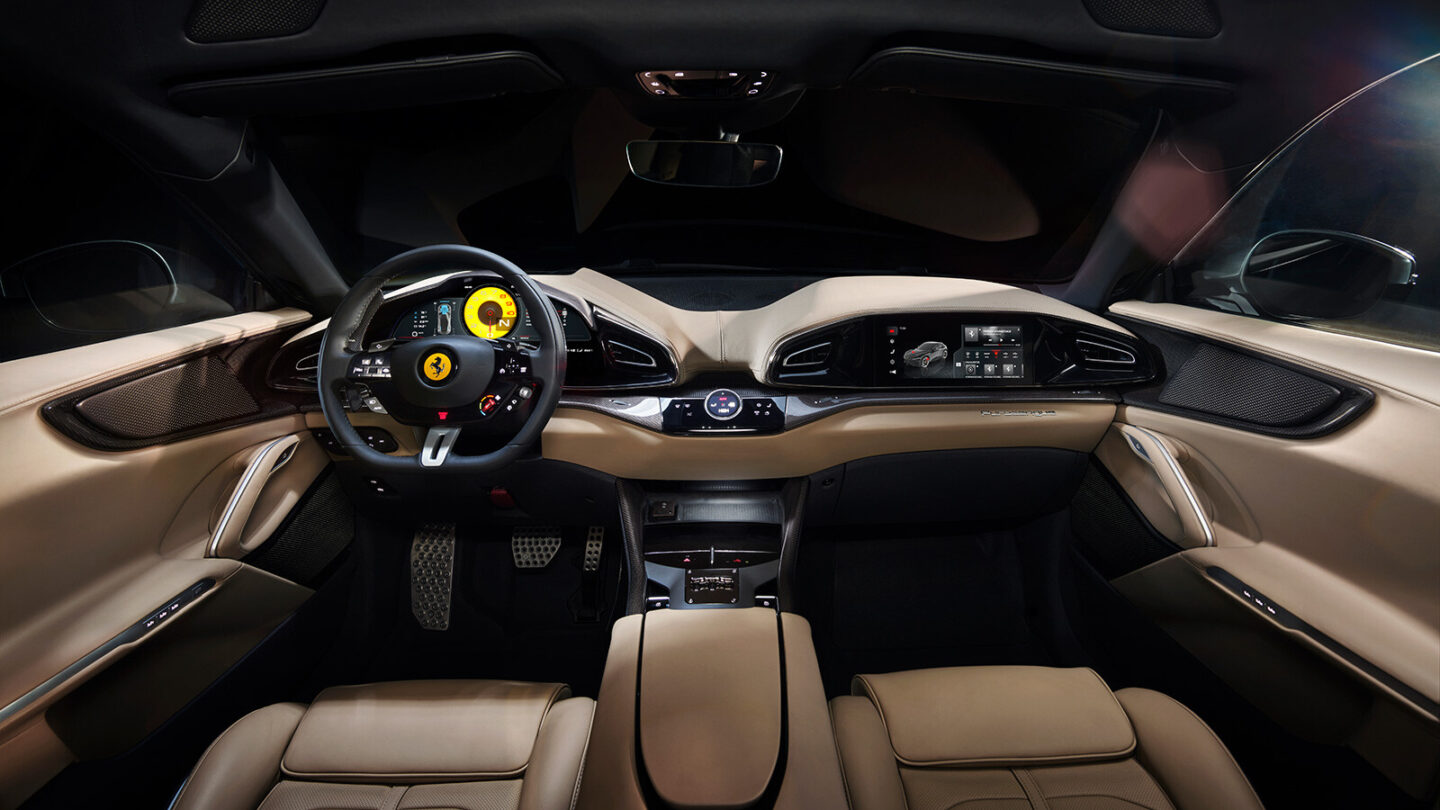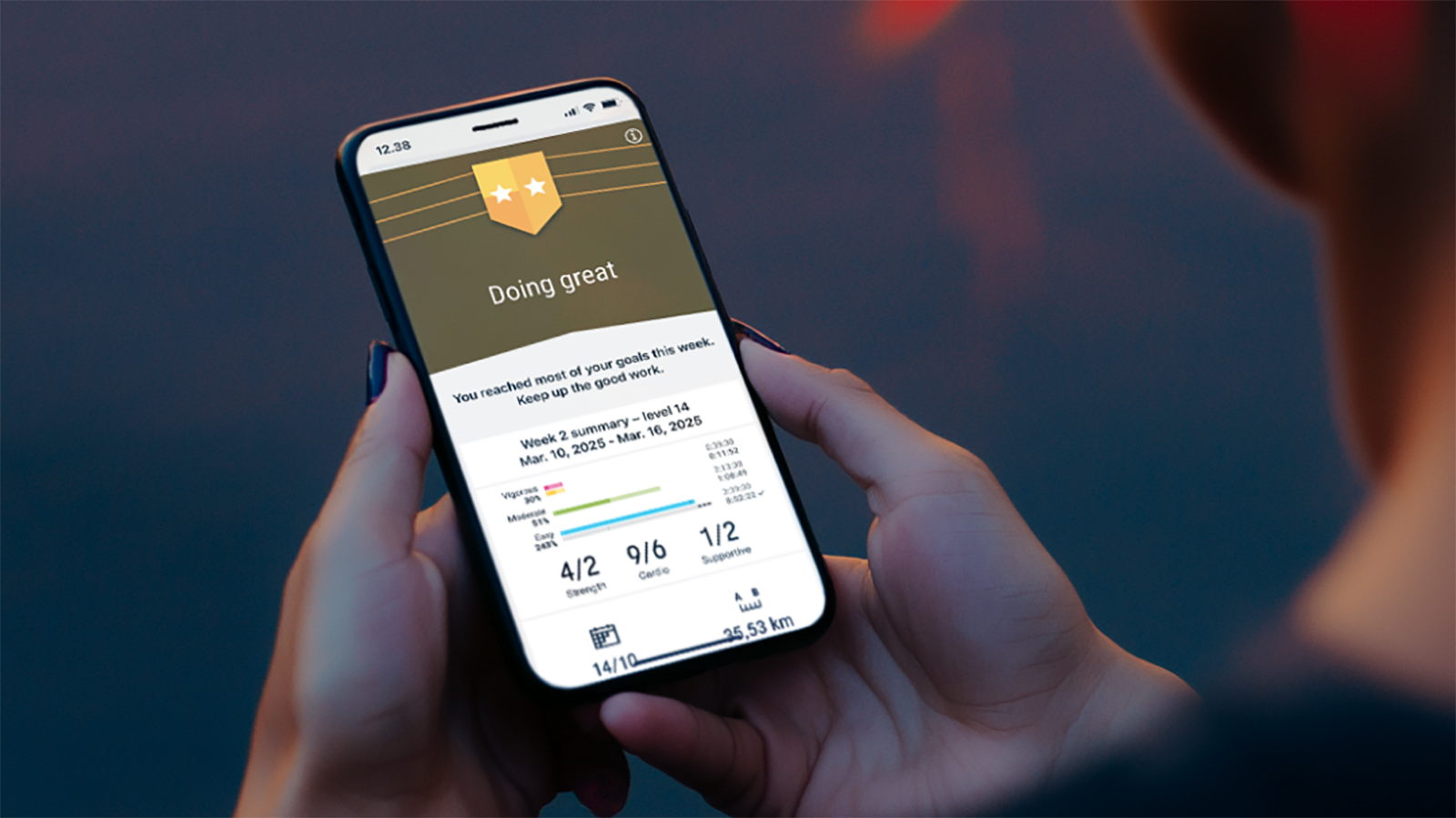

It was inevitable that car manufacturers would eventually ditch their own navigation systems in favour of smartphones running Apple CarPlay and Android Auto. But no one could have guessed that Ferrari would be the first to smartly accept defeat.
I recently wrote about how, in the face of far superior competition from smartphone applications and integrated systems like Android Automotive, as well as the next generation of Apple CarPlay, that car manufacturers should give up while they are behind, and stop producing their own infotainment systems.
And, while Ferrari hasn’t quite gone that far – the Purosangue can still play music and the radio through its own entertainment system, without a phone connected – it will leave the factory in Maranello with no navigation of its own.
This is a wholly good thing. While seemingly space age when they arrived en masse almost two decades ago, built-in car navigation systems have failed to keep pace with the smartphones in our pockets.
Lower-resolution and less responsive displays, slower internet connectivity, less intelligent voice recognition systems and, for many years, an inability to be updated without being plugged into the computer – and credit card reader – of a main dealer, has led to the slow but inevitable death of the car navigation system.

But no matter how obvious a demise this was, few would have put their money on Ferrari being first to pull the plug.
Speaking to Autocar about the Purosangue, Ferrari product boss Gianmaria Fulgenzi said: “Whatever nav’ system we put in our car, it will never be more updated or advanced than one on a phone.”
Sign up to the T3 newsletter for smarter living straight to your inbox
Get all the latest news, reviews, deals and buying guides on gorgeous tech, home and active products from the T3 experts
Of course, it may also be the case that the lack of navigation is related to the global chip shortage, which is still crippling car makers’ ability to build vehicles with every optional feature installed at the factory.
Assuming this is an entirely deliberate move, it is refreshing to see such clarity of thought from a car manufacturer. No incessant flogging of an unfit-for-purpose mapping system; no blind and wilful ignorance of the abilities of the smartphone, and instead an acceptance that Ferrari’s considerable brainpower is better spent honing a chassis and V12 engine to outgun Aston Martin and Lamborghini, not writing code to outwit Apple and Google.
Many more manufacturers should follow suit, and I suspect they will sooner rather than later. Already, some are swapping out their own voice recognition systems for Amazon Alexa and Google Assistant – the latest Range Rover and Range Rover Sport use the former, as an example.
On the recent media drive of another premium SUV, the manufacturer encouraged journalists to use Google Maps on their USB-connected smartphone instead of the car’s own system.
Soon, as an evolution of the Volkswagen Up with its dashboard-mounted smartphone dock in place of a display, car manufacturers will adopt a BYOD policy – bring your own device.
They can then cease their failing to keep up with Silicon Valley, and instead focus on truly seamless phone connectivity. This will require obvious functionality that is still often missing, like wireless Apple CarPlay and Android Auto in every vehicle and, crucially, wireless charging pads that are secure, reliable, cooled to prevent smartphone overheating, and located safely out of sight.
Cars and smartphones can work together in perfect harmony, so long as they let each other get on with what they’re best at.
Alistair is a freelance automotive and technology journalist. He has bylines on esteemed sites such as the BBC, Forbes, TechRadar, and of best of all, T3, where he covers topics ranging from classic cars and men's lifestyle, to smart home technology, phones, electric cars, autonomy, Swiss watches, and much more besides. He is an experienced journalist, writing news, features, interviews and product reviews. If that didn't make him busy enough, he is also the co-host of the AutoChat podcast.
-
 3 overrated shoulder exercises, according to a fitness expert (and what to do instead)
3 overrated shoulder exercises, according to a fitness expert (and what to do instead)Sculpt 3D shoulders whilst minimising injury with these three alternative exercises
By Bryony Firth-Bernard Published
-
 Polar’s new subscription feature lands in the shadow of Garmin’s Connect+ rollout
Polar’s new subscription feature lands in the shadow of Garmin’s Connect+ rolloutPR genius or timing disaster? Polar’s new Fitness Programme adds adaptive training to its ecosystem
By Matt Kollat Published